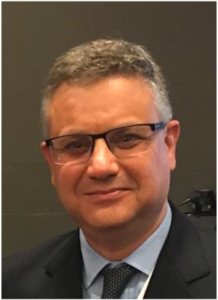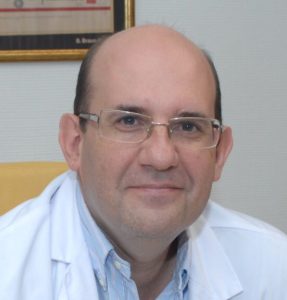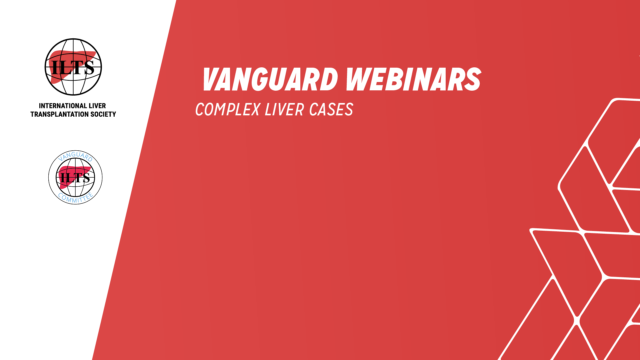ILTS Insights – The Power of AI to Optimize Liver Transplant Allocation and Outcomes
On October 28, listen to presentations from renowned experts Bo Wang and Javier Briceno in this first webinar organized by the Liver Transplant Basic Science Committee.
Event Recording
Watch on ILTS Education
- Basic Science ∙
- Bo Wang and 3 others ∙
- ILTS Insights ∙ Webinar ∙ November 4, 2021

Webinar
The Power of AI to Optimize Liver Transplant Allocation and Outcomes
Date: October 28, 2021
Time: 3:00 PM CEST / 9:00 AM EST
Agenda:
- Introduction (Mamatha Bhat)
- How to Apply AI tools in my liver transplant research: the Computer Scientist’s perspective – Bo Wang, Vector Institute, Toronto, Canada (15-20 mins)
- Optimizing Donor-Recipient Matching using Machine Learning Algorithms – Javier Briceno, Cordoba, Spain (15-20 mins)
- Q&A moderated by Mamatha Bhat and Eliano Bonaccorsi-Riani
Registration:
Please register in advance for this meeting:
https://zoom.us/meeting/register/tJEudO6qpjsuEtMzhW-vtG6uA0ynmx_vOS1P
After registering, you will receive a confirmation email containing information about joining the meeting.
Moderators:
 Dr. Mamatha Bhat is a staff Hepatologist and clinician-scientist at UHN’s Multi Organ Transplant Program and Assistant Professor at the University of Toronto’s Division of Gastroenterology & Hepatology. The goal of Dr. Bhat’s research program is to enable a precision medicine approach to long-term complications after liver transplantation through a better understanding of their mechanistic basis. She has been specifically examining non-alcoholic steatohepatitis and hepatocellular carcinoma in the context of liver transplantation. Her research program employs a bench-to-bedside paradigm that connects clinical outcomes with basic research using bioinformatic analysis of ‘omic datasets (e.g., transcriptomic, miRNA, methylation, intestinal microbiome) and machine learning tools. Her research program is supported by the Canadian Institutes of Health Research (CIHR), NSERC, American Society of Transplantation, Canadian Liver Foundation, and Canadian Donation and Transplant Research Program. She has over 90 publications to her credit, including in journals such as Hepatology, Lancet Digital Health, Journal of Hepatology, and JAMA Surgery. Mamatha is on the Executive Committee of the Canadian Donation and Transplant Research Program and serves on the ILTS Translational Science Committee.
Dr. Mamatha Bhat is a staff Hepatologist and clinician-scientist at UHN’s Multi Organ Transplant Program and Assistant Professor at the University of Toronto’s Division of Gastroenterology & Hepatology. The goal of Dr. Bhat’s research program is to enable a precision medicine approach to long-term complications after liver transplantation through a better understanding of their mechanistic basis. She has been specifically examining non-alcoholic steatohepatitis and hepatocellular carcinoma in the context of liver transplantation. Her research program employs a bench-to-bedside paradigm that connects clinical outcomes with basic research using bioinformatic analysis of ‘omic datasets (e.g., transcriptomic, miRNA, methylation, intestinal microbiome) and machine learning tools. Her research program is supported by the Canadian Institutes of Health Research (CIHR), NSERC, American Society of Transplantation, Canadian Liver Foundation, and Canadian Donation and Transplant Research Program. She has over 90 publications to her credit, including in journals such as Hepatology, Lancet Digital Health, Journal of Hepatology, and JAMA Surgery. Mamatha is on the Executive Committee of the Canadian Donation and Transplant Research Program and serves on the ILTS Translational Science Committee.

Dr Eliano Bonaccorsi-Riani is a Liver Transplant Surgeon at the Liver Transplant Unit at Cliniques Universitaires Saint-Luc (CUSL), Université Catholique de Louvain (UCL) in Brussels, Belgium. He has an active role in the Living Donor Liver Transplant Program of this institution. His research interest focuses on the tolerance and rejection biomarkers in liver transplantation. Dr. Bonaccorsi-Riani is also a senior investigator at the Pôle de Chirurgie Expérimentale et Transplantation at the Institute de Recherche Clinique (UCL) where he develops and conducts experimental research projects using the rodent liver transplant model to investigate the mechanisms underlying the post liver transplantation tolerance establishment. He also uses his experimental model on the development of strategies on how to improve the post-transplant ischemia and reperfusion injury, most notably, using the gene therapy modulation as RNA interference associated with organ machine perfusion.
Speakers:
 Dr. Bo Wang is an Assistant Professor in the departments of Laboratory Medicine & Pathobiology and Computer Science at the University of Toronto. He is also the inaugural Temerty Professor in AI Research and Education in Medicine. Dr. Wang also leads the AI team in Peter Munk Cardiac Centre at the University Health Network. He is also a Faculty Member at the Vector Institute and a CIFAR AI chair.
Dr. Bo Wang is an Assistant Professor in the departments of Laboratory Medicine & Pathobiology and Computer Science at the University of Toronto. He is also the inaugural Temerty Professor in AI Research and Education in Medicine. Dr. Wang also leads the AI team in Peter Munk Cardiac Centre at the University Health Network. He is also a Faculty Member at the Vector Institute and a CIFAR AI chair.
Dr. Bo Wang obtained his PhD from the Department of Computer Science at Stanford University in 2017. His PhD work covers statistical methods for solving problems in computational biology with an emphasis on integrative cancer analysis and single-cell analysis and has published multiple first-authored papers in world-renowned journals such as Nature Methods and Nature Communications.
Bo’s primary research areas are machine learning, computational biology, and computer vision. Through his long-term research goals, Bo aims to develop integrative and interpretable machine learning algorithms that can help clinicians with predictive models and decision support to tailor patients’ care to their unique clinical and genomic traits.

Javier Briceño, M.D, PhD is Chief of the Department of General and Digestive Surgery and Head of liver and pancreas transplant programs at the Reina Sofía University Hospital, Córdoba, Spain. He is currently the Coordinator of the abdominal organ transplant Section of the Spanish Association of Surgeons (AEC) and former scientific director of the Spanish Liver Transplant Society (SETH). He is the Research Coordinator within the solid organ transplant area of the Maimonides Biomedical Research Institute of Córdoba (IMIBIC). He is also a Member of the Royal Academy of Medicine of Seville, Spain.
His research focuses on expanded donor pool in liver transplantation, as well as introducing new liver donation techniques, such as laparoscopic donation in living donors and the use of ex vivo extracorporeal preservation machines. Currently, he is an enthusiast of robotic liver surgery.
He has published extensively and has been invited nationally and internationally to share his experience in Artificial Intelligence in Organ Transplantation. He is proud to have trained the next generation of liver transplant surgeons who then led other liver transplant programs in the country.








